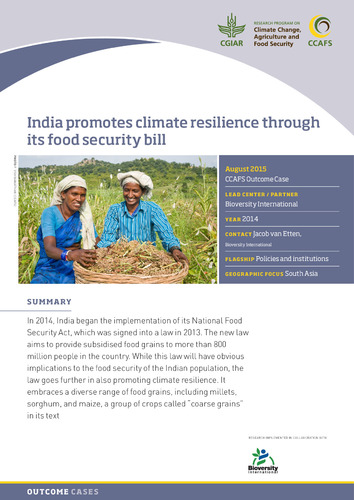India promotes climate resilience through its food security bill
Abstract
In 2014, India began the implementation of its National Food Security Act, which was signed into a law in 2013. The new law aims to provide subsidised food grains to more than 800 million people in the country. While this law will have obvious implications to the food security of the Indian population, the law goes further in also promoting climate resilience. It embraces a diverse range of food grains, including millets, sorghum, and maize, a group of crops called “coarse grains” in its text. This is a first, as prior to this law, food distribution systems only sourced “fine grains” i.e. rice and wheat. Coarse grains are highly nutritious, but they are also highly resistant to climate-induced stresses. Their inclusion in the law is likely to promote cultivation, especially in the more marginal areas of India, where these crops are very important for local food security and cultural identity. It is estimated than over 31 million Indian farmers grow these crops, stimulating their production therefore contributes to climate adaptation and food security.

